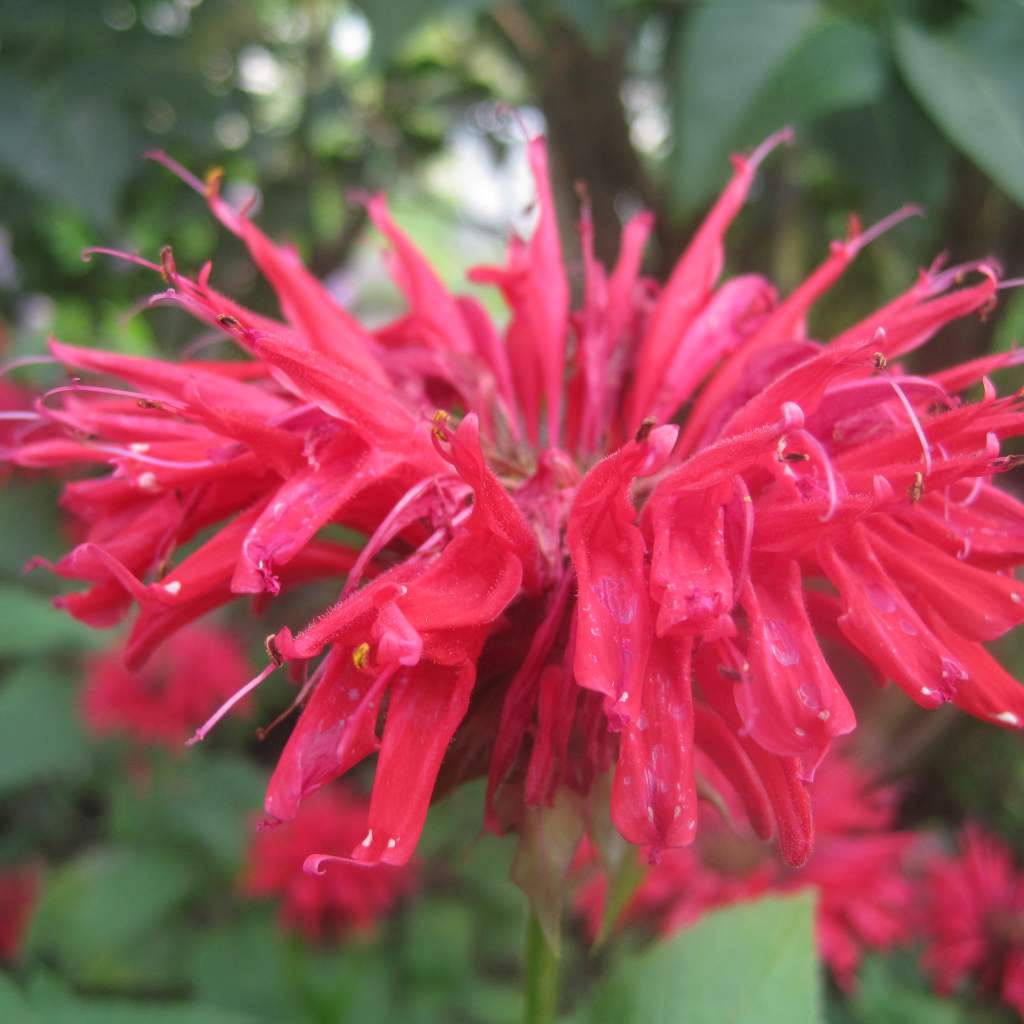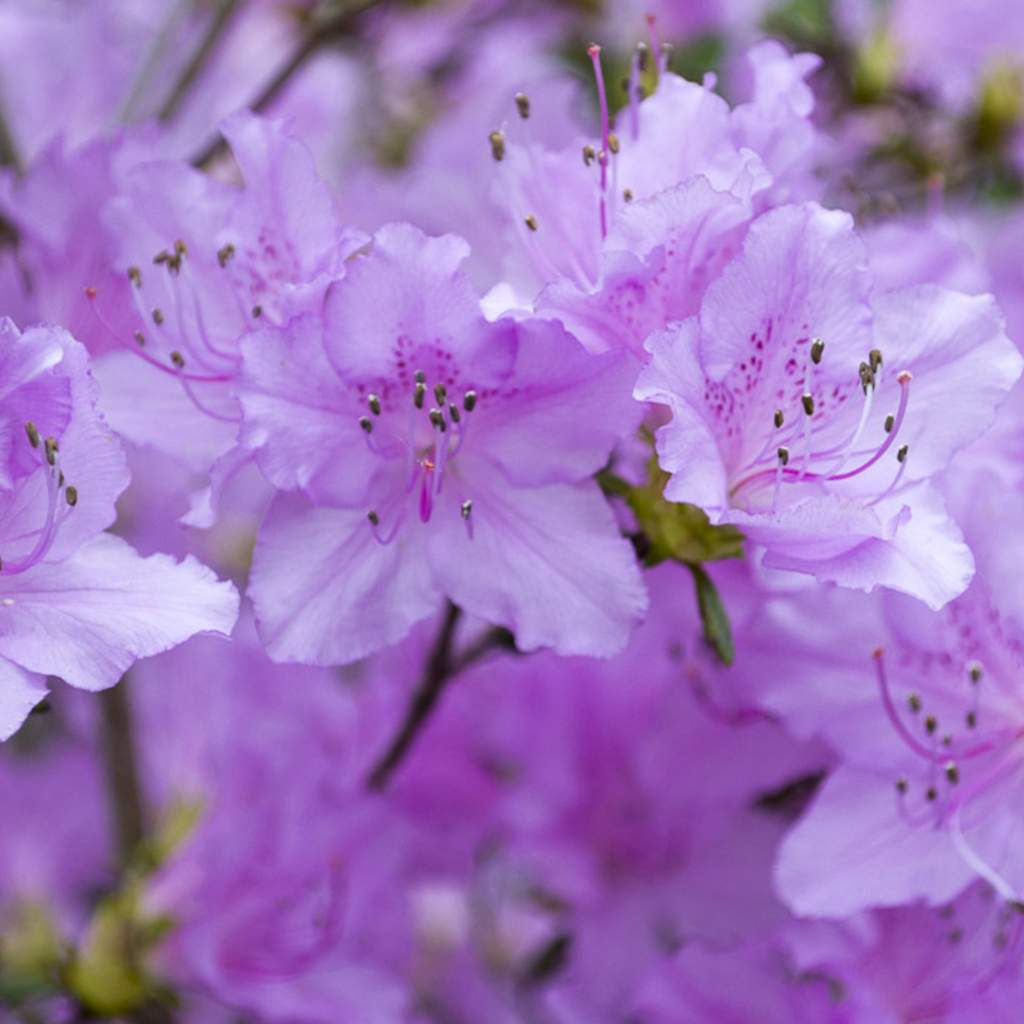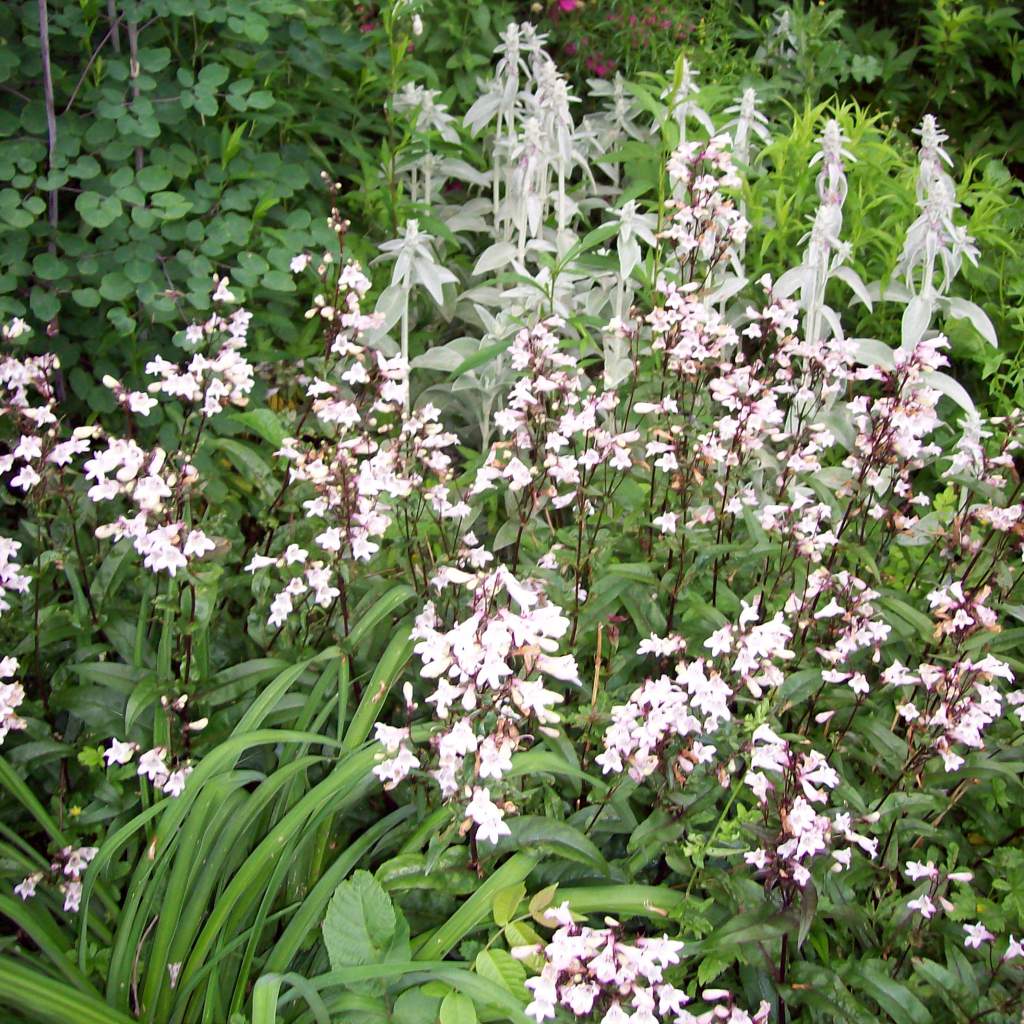We have a commitment to native plants and make it our mission to educate our customers about the many beautiful natives that will fill their landscape and garden needs.
We understand that native plants are essential for sustaining a complex community of native birds, insects, amphibians and mammals. We hope to help customers develop yards that are eco-friendly and truly sustainable. Native plants are needed in home gardens, more than ever before, as a way to replace a little bit of our natural landscape that is so rapidly disappearing. If we – and our customers – don't grow these plants, who will? They are often (not always) much more easily adapted to the soils and weather we have. A Red Osier dogwood has no problem with a wet, clay-based soil, cold winter winds and temperatures down to minus twenty degrees Fahrenheit. A Japanese Pieris would rot and falter, or die after the first winter, in the same location. We've used native plants all along, but many people just don't know what is native or exotic. Many of our favorite plants – Clethra (summersweet), Asclepias (butterfly weed), and Amelanchier (serviceberry) – happen to be native. See our listing of a few native plants below.
What is Native Anyway?
There are purists who wish us to garden with only local plants, from this part of New York State, for instance. Others consider plants from the Northeast to be native, and some consider plants which were here before the first European settlers arrived to be native. We think it is important to use native plants, especially if they're from our region, but even if they are native to other regions. The key factors: is the plant in a site that suits it, and is it useful to our wildlife?
Native Trees and Shrubs
These are some of the native plants we carry at Lockwood's. In some cases, we may have nativars (cultivars of the native species). As for our Tree & Shrub department, about half our stock is actually native plants! Let our staff help you select which native plants are right for your yard and garden. Planting native provides much needed habitat and food sources for our wildlife and pollinators.
- Aesculus parviflora (Buckeye)
- Amelanchier spp. (Serviceberry, Shadblow, Shadbush)
- Andromeda polifolia (Bog Rosemary, Marsh Andromeda)
- Aralia spinosa (Devil's Walking Stick)
- Arctostaphylos uva-ursi (Bearberry, Kinnikinnik)
- Aristolochia macrophylla (Dutchman's Pipe, Pipevine)
- Aronia melanocarpa (Black chokeberry)
- Asminia triloba (Paw-Paw Tree)
- Ceoanthus americanus (New Jersey Tea)
- Cephalanthus occidentalis (Buttonbush)
- Cercis canadensis (Eastern Redbud)
- Chionanthus virginicas (White Fringetree)
- Clethra alnifolia (Summersweet, Sweet Pepperbush)
- Comptonia peregrina (Sweetfern)
- Cornus spp.* (Gray Dogwood, Red Osier Dogwood, Flowering Dogwood)
- Cotinus obovatus (American Smoktree)
- Diervilla lonicera (Bush Honeysuckle)
- Diospyros virginiana (Persimmon Tree)
- Fothergilla major, F. gardenii (Witch-alder, Bottlebrush)
- Gaultheria procumbens (Wintergreen)
- Gaylussacia baccata (Black Huckleberry)
- Hamamelis virginiana (Witch Hazel)
- Hydrangea arborescens, H. quercifolia (smooth and oakleaf hydrangeas)
- Ilex verticillata (Winterberry Holly)
- Itea virginica (Virginia Sweetspire)
- Juniperus communis (Common Juniper)
- Kalmia angustifolia, Kalmia latifolia (Sheep Laurel, Mountain Laurel)
- Lindera Benzoin (Spicebush)
- Magnolia virginiana (Sweetbay Magnolia)
- Myrica or Morella pensylvanica (Bayberry)
- Philadelphus spp. (Mock Orange)
- Physocarpus opulifolius (Ninebark)
- Potentilla fruticosa (Shrubby Cinquefoil)
- Prunus americana (American Plum)
- Ptelea trifoliata (Common Hoptree, Wafter Ash, Stinking Ash)
- Rhododendron spp. (Azalea, Rhododendron)- some species
- Rhus aromatica (Fragrant Sumac, Gro-Low Sumac)
- Ribes rubrum (Flowering Currant)
- Rubus allegheniensis, R. occidentalis, R. idaeus (Blackberry, Black Raspberry, Red Raspberry)
- Sambucus canadensis, S. racemosa (Elderberry)
- Spiraea alba, S. corymbosa, S. tomentosa (Spiraea)
- Staphylea trifolia (American Bladdernut)
- Symphoricarpos albus (Common Snowberry)
- Thuja occidentalis (Northern White Cedar, Arborvitae)
- Vaccinium corymbosum, V. angustifolium (Highbush + Lowbush Blueberries)
- Viburnum spp. (V. dentatum -Arrowwood)
While Lockwood's does not sell many large trees, however, the most valuable thing you can do for the largest number of wild animals and to benefit the native ecosystem is plant a native shade tree such as a White Oak or Shagbark Hickory.
Native Perennials for Birds, Butterflies, Pollinators and Other Beneficial Insects
These perennials include cultivars of native species that usually have value for native insects, including butterflies and other pollinators:
- Achillea A. ptarmica or A. millefolium (Yarrow)
- Agastache foeniculum (Anise Hyssop)
- Aquilegia formosa (Crimson Columbine)
- Asclepias incarnata (Swamp Milkweed)
- Asclepias tuberosa (Butterfly Weed)
- Boltonia asteroides (Bolton's Aster)
- Eupatorium (many species) -- (Joe Pye Weed)
- Geranium (perennial Geranium cultivars)
- Heuchera villosa, hybrids that flower
- Hypericum densiflorum (St. John's Wort)
- Kniphofia hybrids (Torchlily)
- Liatris spicata (Gayfeather)
- Monarda spp. (Bee Balm)
- Penstemons
- Rudbeckia spp. (Black-Eyed Susan)
- Salvia spp. (Sages)
- Scabiosa spp. (Pincushion Flowers)
- Tanacetum vulgare (Tansy)
- Verbena
- Vernonia noveboriensis (New York Ironweed)
Finally, observe your plants at home or in garden centers and public gardens. Experts can recommend, but butterflies, bees and birds can show you which plants really make a difference.


